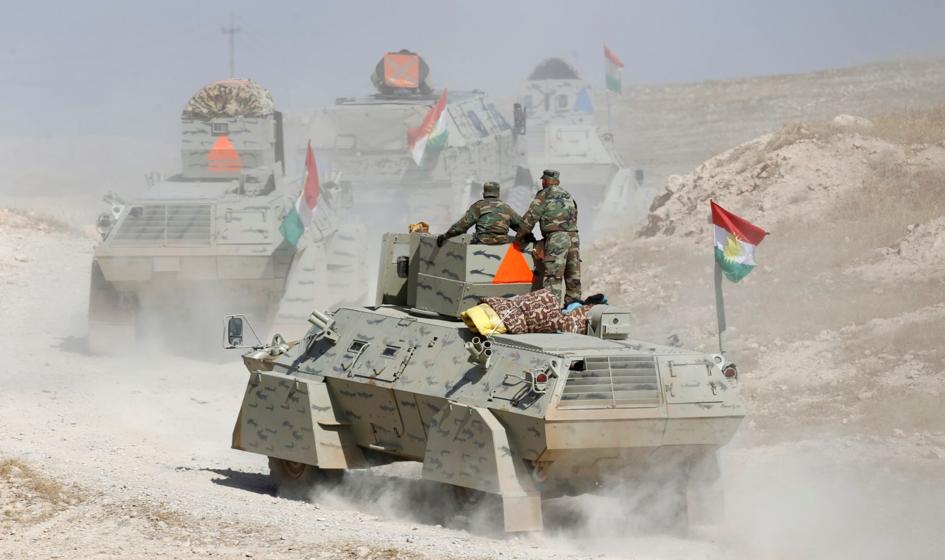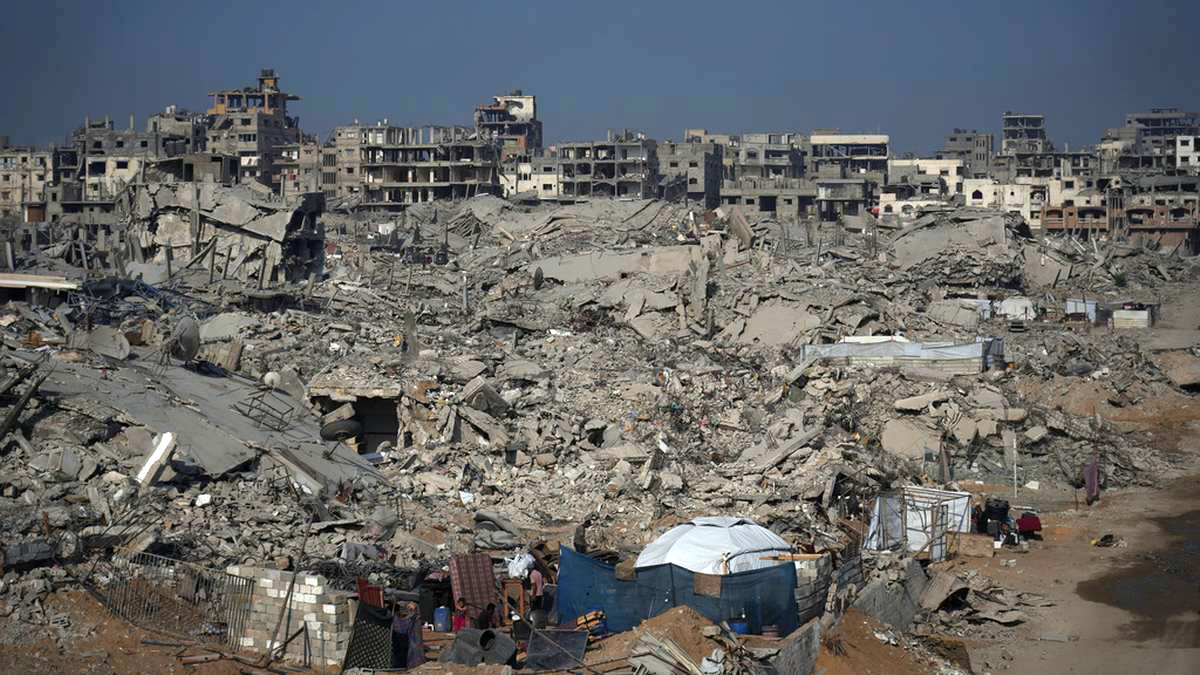One of the consequences of the invasion of Ukraine and expansion in Africa is the education in Russia of a complex strategy of semi-private military entities: volunteer battalions, Cossack brigades, formations financed by oligarchs or regional civilian administration. And along with them appeared besides a circumstantial social class, not a professional group – contemporary landscapers, people for whom war became a occupation and a way of life.
Wagner Group members prepare to leave South Military territory office and return to their base on 24 June 2023 in Rostov nad Don in Russia.
“Have you dreamed about visiting the Black Continent like in old times with Wagner?” is the question at the beginning of 1 of the recruitment announcements published on the Telegram. “Do you want to aid defend the interests of your homeland at distant borders? And service under the command of legendary commanders?’
Various benefits are further mentioned: a wage higher than for those fighting in Ukraine, a one-off payment of more than 2 million rubles at the haul, life insurance, appropriate “working tools” and good quality uniformation, as well as – in the form of a gag – the chance to see “a unique safari park”. All illustrated by a clip with dynamically assembled staff of Russian mercenaries in Africa, coated with quotes from Yevgenija Prigozhina.
That's how the volunteers in Mali look African Corps, a Russian formation intended, as the name suggests itself, to act in remoter regions of the globe. However, what is characteristic, although the corps is officially part of the regular Russian army and is subject to the Ministry of Defence, it recruits to Africa utilizing outsourcing. The quota for Mali is formed by 1 of the erstwhile commanders Wagner Groups The code name “Kep” which uses – as a man known in the environment, 1 of these “legendary” commanders from the announcement – its own individual brand. ‘Kep’ is the commander and founder of the 2nd Assault Branch within the Wagner Legion. The Legion is formally subject to 1 of the Lugansk brigades, but is formed in the city of Istra in the Moscow region and partially financed by the local authorities and under the patronage of Apti Alaudinov, commander of the Achmat specnazu. He is to take part in the fighting in Ukraine, but 2 of his subdivisions – the aforementioned “Keep” division and the another branch, dedicated to Libya – are to be delegated to the African Corps.
This overly complex system, not recalling the structure of any another army in the world, is indirectly the consequence of Vladimir Putin's decision not to carry out full mobilisation. If recruits cannot be forced to go to war, they must be encouraged in a different way: usually with money and various kinds of benefits. This in turn increases costs, so the Kremlin reaches into the pockets of people who, thanks to his grace, have the resources to cover these costs: oligarchs, businessmen or politicians of various levels. Thus, their own formations were exhibited by large companies, specified as Roskosmos and Gazprom, as well as single people, specified as the Russian politician of Crimea, Sergei Aksionov, who patronises the Cossack unit “Convoy”, or Senator and erstwhile Deputy Prime Minister Dmitri Rogozin, exhibiting the “Sarmat” branch.
After Wagner Group's rebellion of June 2023, all these units were formally subordinate to the Ministry of Defence or Rosgwardia, but de facto they stay semi-private and have a certain amount of autonomy. And since they cannot draw recruits from a centralised mobilization system, they themselves must guarantee adequate level of recruitment in free marketplace conditions. So they created a strategy of incentives, benefits and bonuses, akin to the civilian labour market. Various formations offer different terms of service, competing with wage or insurance, the quality of weapons and equipment, or even uniforms and food. In addition to financial incentives, they besides scope for little tangible, competing even with the commander's reputation or the ability to become a veteran combat action. They besides scope deeper and deeper in search of resources: any of them recruit under the Parasol Project, i.e. accept people with infectious diseases specified as HIV or hepatitis; any of them accept candidates from the alleged peculiar contingent – convicts and people facing court proceedings. There are even ones that recruit veterans after amputations and another serious wounds.
And since there is simply a advanced request for those willing to go to the front, supply has naturally developed. At least tens of thousands of people came through various volunteer formations. any of them died or suffered wounds preventing further service, any returned to civilian life after serving the contract. For many, however, war has become a way to live, work like any other. "For individual who first drives behind a ribbon [on the front], it can be terrifying," he writes on 1 of the chats for candidates for service an experienced soldier, convincing the undecided that war is nothing terrible, "but for us who fight from the beginning, it's a average thing."
Those who are willing to service attract money, frequently many times greater than those available to them in civilian life, but besides more immaterial things: a sense of belonging, purpose, and elite; there are those whose lives have given meaning to war. “Nothing good has always happened to me in a civilian,” says the commander of 1 of the branches forming this mercenary ward. "All that is valuable in my life comes from war."
In this way, a layer of people have developed in 1 way or another benefiting from the war: from oligarchs or local politicians at the top, who fund their own formations, break political capital and gain the grace of the Kremlin, by the leaders of the individual troops for whom it is simply a chance for social promotion, career and good money, to the people at the bottom, storming Ukrainian trenches for promising an equivalent of $2,000 a month.
“Our craft is war,” says the recruiting slogan of the African Corps. And this is an highly accurate slogan, describing not only the soldiers of this formation, but all members of the quasi-rented Russian troops: people for whom war has become a gainful job, a profession, a craft just.
Of course, 1 can argue that in all society specified a group exists, in the form of professional military. There is, however, a fundamental difference: in strictly state-owned armed forces, a soldier has no nonsubjective interest – possibly beyond the chance of faster promotions – in order to keep the war going. A professional soldier collects his wage and can do his career besides in times of peace. For the Russian Landsknechts, the end of the war, whenever it occurs, will mean the deprivation of a livelihood.
This means that tens of thousands of people will stay in Russia after the conflict is over, for whom war and force are craftsmanship and who will abruptly lose their origin of income. And this is simply a immense threat to the stableness of the full region.









